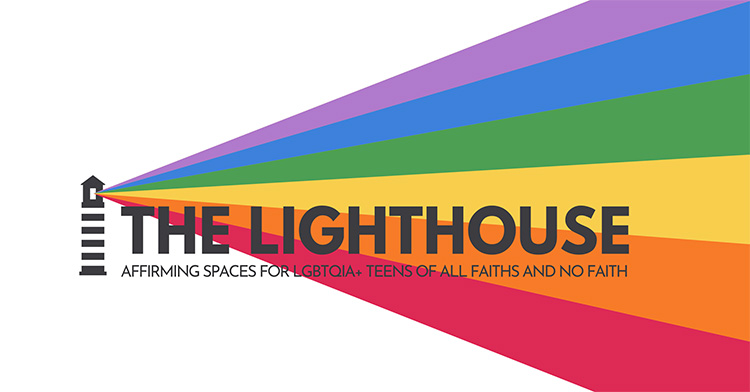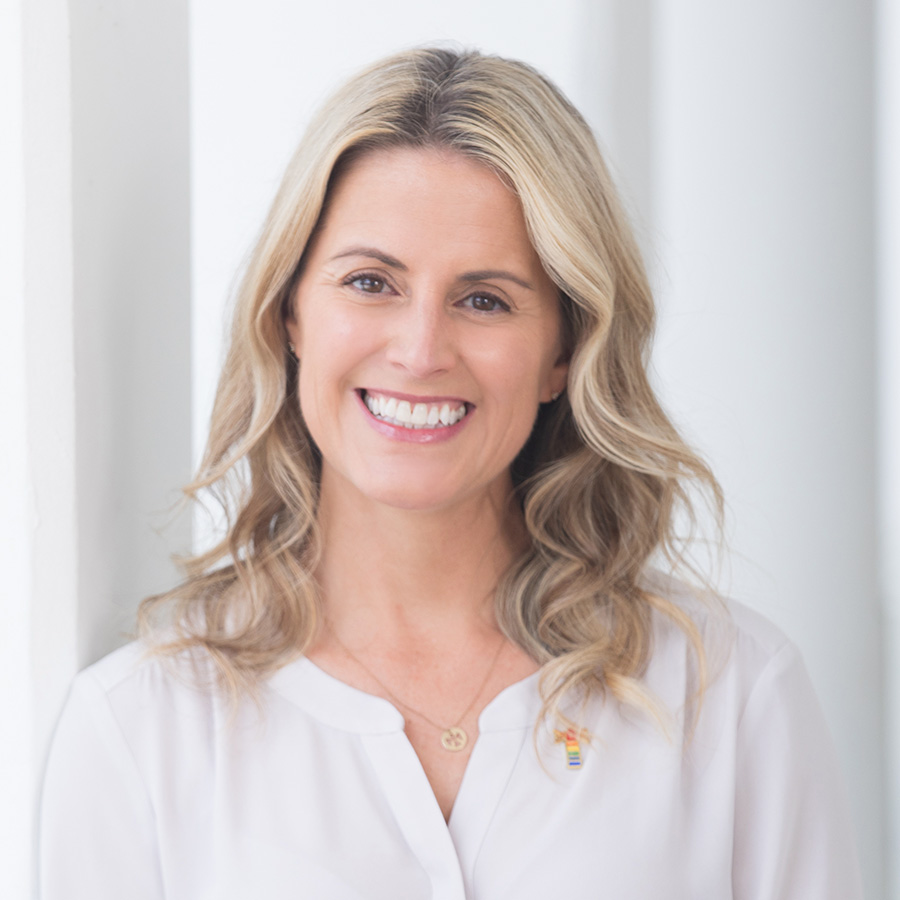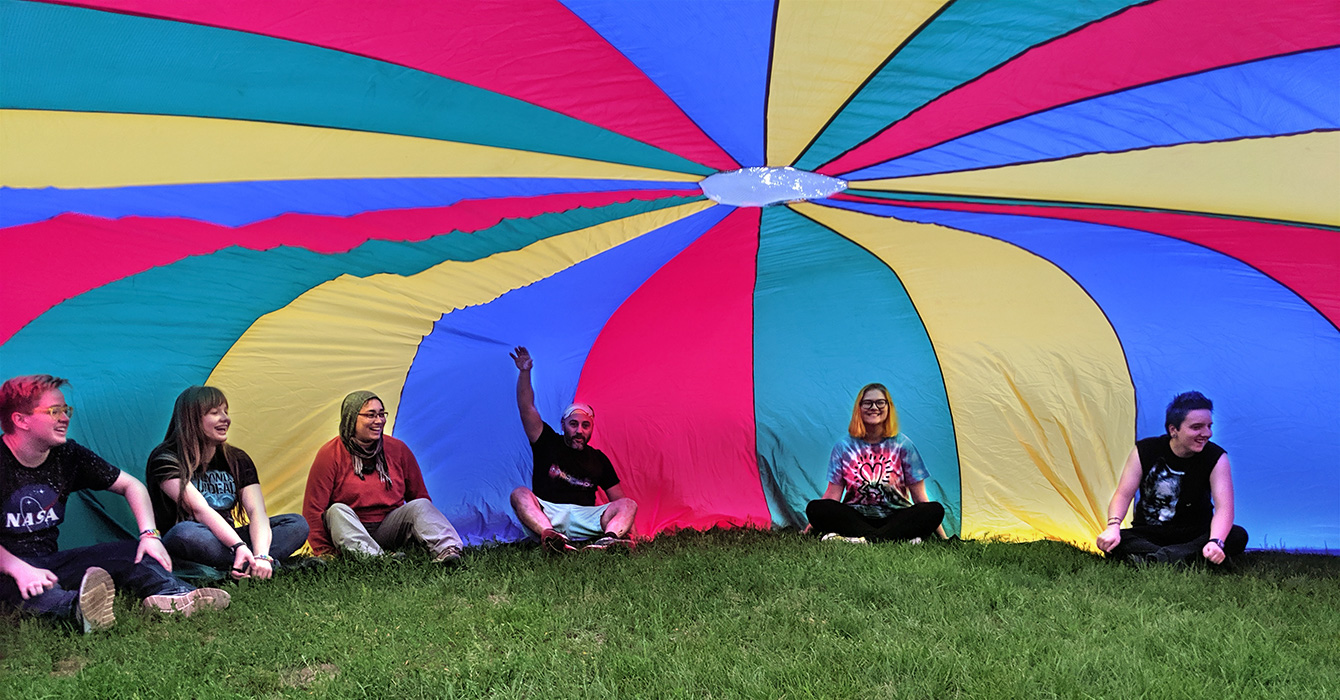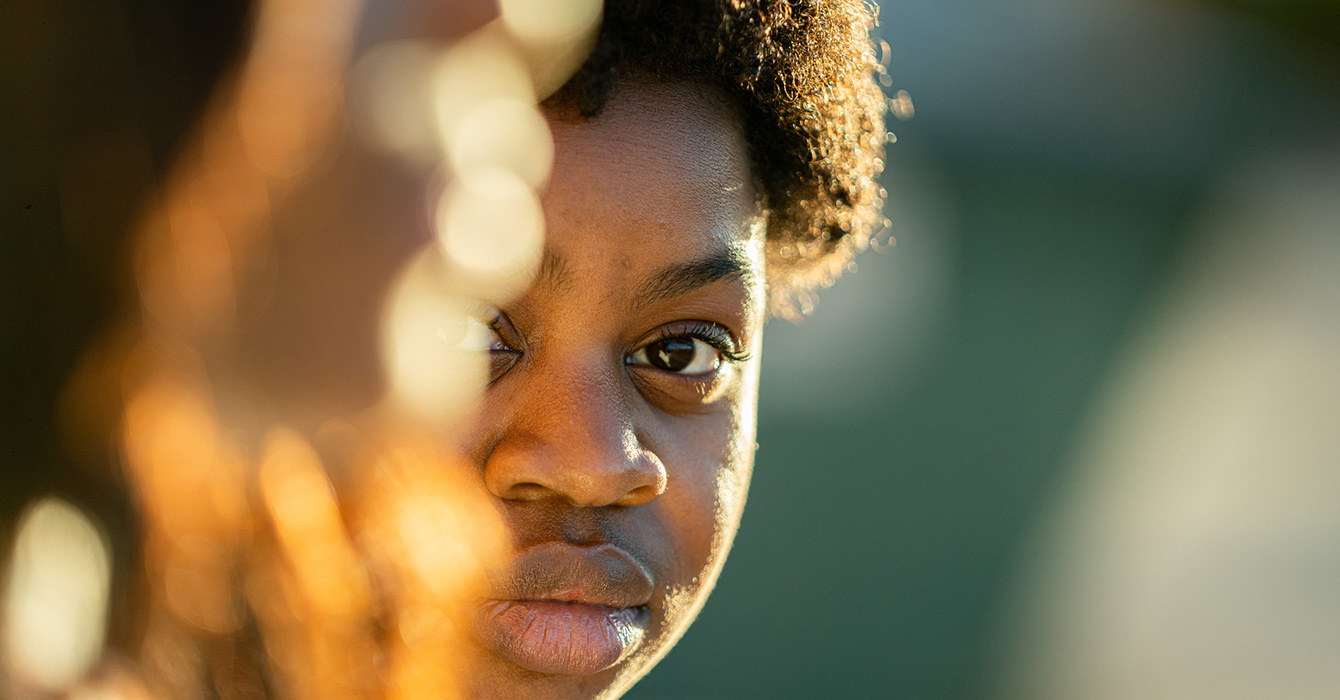There are 30 lighthouses along the coastline of Florida, guiding seafarers as they navigate rough waters or unfamiliar territory, helping them find safe harbor under threat of raging storms.
This image beckoned in 2019, as my colleagues and I considered creating a new expression of youth ministry intended for young people who have not typically been served well by the church. It was clear to us then that there was no safe harbor for LGBTQ youth in our town, where belonging seemed to depend on fitting into a tightly prescribed, predetermined ideal.
When wind and waves buffeted their boat in the Gospel of Mark, the disciples awakened Jesus and asked, “Teacher, do you not care that we are perishing?” (Mark 4:35-41 ESV). Jesus did care. He rebuked the wind and said to the sea, “Peace! Be still!”
As the body of Christ, the church is likewise called to care for those in harm’s way. But many faith communities in our area seemed to offer either silence or condemnation when it came to inclusion for queer youth. These were stormy seas indeed, yet we had no idea then how rough they’d become in the ensuing years, when anti-LGBTQ legislation created a civil rights crisis in our state.
In considering our new ministry, we learned about the disproportionate risks to LGBTQ youth of anxiety, depression, self-harm and suicide. And we learned about the protective impact of trusted adults and affirming spaces. Study after study shows that when LGBTQ young people are supported by the adults in their lives, they thrive.
All we had to offer were adults who cared, who respected LGBTQ identities as reflective of God’s beautifully diverse creation, and a space to gather. We decided that what we had was enough to create a harbor for those in the storm, and out of that, The Lighthouse was born.
The Lighthouse is a nonreligious, twice-monthly gathering for middle and high school LGBTQ students looking for friendship and connection. Over junk food, music and conversation, a community of radical welcome has grown — created, nurtured and sustained by the youth.
The adult leaders provide the space and the junk food, a listening ear, and a loving presence. It is, more than anything, a ministry of simply showing up for queer youth, week after week, and loving them as they are. It is a sad indictment of our larger culture that this humble offering is so desperately needed yet so hard to find.
There is also a monthly Lighthouse gathering for parents and guardians, where participants can share experiences and supportive resources, hear from special guests who support LGBTQ young people in the community, and learn from parents of LGBTQ adults. In these gatherings, parents at all stages of learning and advocacy can speak freely without fear of judgment and develop a new imagination for their children’s future — a future of health, thriving, happiness and love — that might look a little different from what they had previously pictured.
These gatherings are nonreligious for several reasons, including the desire to provide safe spaces for young people of all faiths and no faith, and sensitivity to the well-deserved protective skepticism felt by many LGBTQ people in religious spaces. The Lighthouse is firmly rooted in the church’s baptismal promise to seek and serve Christ in all persons and respect the dignity of every human being. In our gatherings, faithfulness to this covenant means that all people are welcome and loved with no strings attached, and we do not proselytize. The irony of this approach is that when religious people love in this way, some do begin to see the church differently. A door to faith, which might otherwise have been shut, remains open.
If The Lighthouse is non-religious, why is it called a ministry? Because it is simple, joyful, merciful and impactful work rooted in the Good Shepherd’s promise of abundant life for all people.
Though it may not be religious, it is nevertheless sacred. Participants in The Lighthouse community have taught me, by our life together, that God is more loving, more expansive and more present than I could have dreamed had I not known them and been known by them.
And of vital importance, The Lighthouse is a ministry because it is a commitment of the church to the mercy, justice and humility required of us by our loving God. This is not a community activity that happens to take place in a church. It is the church’s expression of love to those whom God loves. The Lighthouse holds up a hand to the wind and the waves and says, “Peace! Be still!” And The Lighthouse turns to the souls in the boat and says, “Yes, I care.”
Providing this space of hospitality and friendship for LGBTQ youth has been challenging for some in the church community where the first chapter of The Lighthouse was founded. Of those who resisted it, some ascribed to theology that does not acknowledge the belovedness of LGBTQ people. But most who were concerned expressed some humility and curiosity — a desire to learn that lay not far beneath the discomfort of unknowing, and a tentative wondering about what the church should and should not do. As a result, their questions share common themes.
Blessed are the humble and curious who ask questions and then listen for the answers.
They ask, “Is this too divisive or political?”
The Lighthouse answers, “The welcome that Jesus offered was often viewed as divisive and political. We are called to love with courage and boldness, following his example.”
They ask, “Are we encouraging young people to be gay, transgender or nonbinary?”
The Lighthouse answers, “It is not the job of the church to tell anyone who they are, other than holy and wholly worthy of God’s love and ours, whoever they are.”
They ask, “Do their parents know?”
The Lighthouse answers, “Their amazing parents found us first.”
They ask, “What if people leave over this?”
The Lighthouse answers, “What if people stay and grow and help us welcome all who will be drawn into our community because we love one another and our neighbors in this way?”
A second Lighthouse opened this spring, and a third church is in discernment. There are common threads among the churches that are hosting a chapter of The Lighthouse, threads that extend beyond their generous hospitality. They are large, well-resourced congregations that value civil discourse and diversity of thought. Each is a “purple” church, where political progressives and conservatives come together at the table of Jesus. Each is a visible, vibrant hub of activity, opening its beautiful spaces to the larger community in creative ways.
When this sort of church hosts a Lighthouse chapter, it is not just the participants who benefit. Smaller churches may feel empowered to open their doors and share their spaces. Barriers begin to fall away, and neighbors are enabled to see one another’s humanity. The wind and the waves are calmed.
At The Lighthouse, a beacon of friendship shines brightly, and love is awakened to rebuke the storms that threaten our young people.
The Lighthouse is happy to support new chapters in Episcopal, ELCA, PCUSA and UMC churches across the nation. Reach out to TheLighthouseFlorida@gmail.com.
It is a sad indictment of our larger culture that this humble offering is so desperately needed yet so hard to find.





























